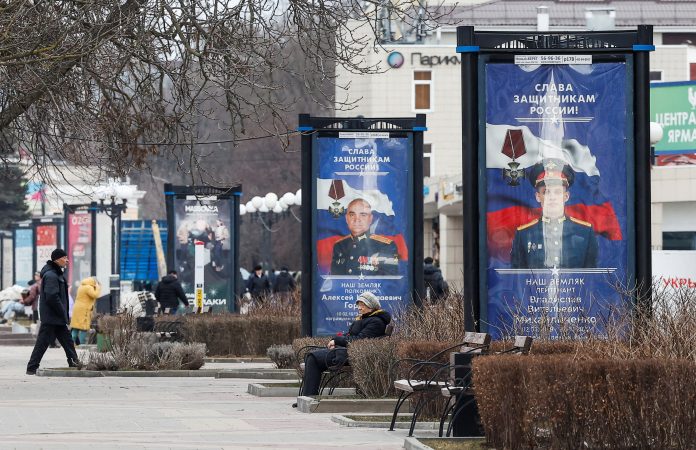On Friday, as polling stations opened across Russia for the three-day presidential election, Ukraine ostentatiously fired a series of salvo missiles at the border city of Belgorod to show the Kremlin’s failure to protect its citizens, but it only served to reinforce the Russians’ position that Moscow is on the right course, Washington Post reported.
Over four days this week, the city’s air defences struggled to intercept the barrage of missiles and explosive drones, while to the east and south of Belgorod, the Russian army battled anti-Kremlin militias that launched attacks along the border. For many residents, though, such attacks only strengthen their support for Vladimir Putin and reassure the Kremlin that Russia is doing the right thing for Ukraine and the west.
For instance, Francesca Ebel, the Washington’s Post’s Russia correspondent, gives examples of some people’s opinions. Lola Muslimova emphasised that she planned to vote for Putin:
“I don’t see a better candidate than our current president – he is managing the situation as best he can,” she said, adding: “In Ukraine, they are all brainwashed, and the West is pressuring us as hard as they can.”
A medic from Belgorod’s territorial defence troops stressed that the attacks prompted him to do his civic duty:
“I was never really a political person – I never voted before,” he said, speaking on the condition of anonymity because he was not authorised to talk to the news media. “But now I’m going to vote out of principle.”
On Thursday afternoon, deafening explosions sent people fleeing into restaurant toilets, workplace basements and concrete bomb shelters that authorities had built at every bus stop. It was the third terrorist attack of the day. At least threee people were killed and at least 20 injured in Thursday’s attacks, officials said.
Ukraine’s strategy of disrupting the vote and fuelling anger at Moscow is having the opposite effect, a Belgorod city councillor said.
“The effect is the opposite: When Russians are faced with such terrorist activities, they do not give up,” Radchenko said. “And as a border city that has repelled external attacks throughout history, there is a sense in Belgorod that we have a whole country behind us,” he added.
In order to contain emotions and control the course of events, authorities are responding quickly to the attacks. On Friday, the Russian Defence Ministry said it had foiled attempts to infiltrate Russian territory and destroyed over 1,500 pro-Ukrainian fighters, 18 tanks and 23 armoured vehicles.
In fact, trying to explain the situation, some refer to Ukraine’s 2014 Maidan revolution, which led to a turn against Moscow. The war, they argue, is the logical result of ten years of tensions with Ukraine, and only joining Russia can lead to complete peace. Earlier, Dmitriy Medvedev, former Russian president and a close associate of Vladimir Putin, published on his Telegram page the so-called “soft Russian peace formula” consisting of seven points, according to which Ukraine should pay Moscow compensation and give up all its territory.
Therefore, instead of dampening the fighting spirit of Russians, the strikes make many in Belgorod think that they are victims and that Russian troops should hit the Ukrainian enemy even harder.
A public photo exhibition in the city centre suggests this. Photos of a mother cradling her child, a young family taking shelter in a bomb shelter and heroic Russian soldiers recall World War II, which is regularly used to legitimise the current conflict. Nearby, soft toys and candles were placed at the city’s Eternal Flame war memorial in honour of the five children killed in the powerful December 30 strike that killed 25 people.
Barely two years ago, most residents of Belgorod could not have imagined that they would be exchanging missile strikes with Kharkiv, a Ukrainian city just an hour and a half away, where many have family and friends. In Belgorod, it is still common to hear Ukrainian accents on the streets and see Ukrainian licence plates on cars. Residents fondly remember the times when there were still trade and transit links with Kyiv.
